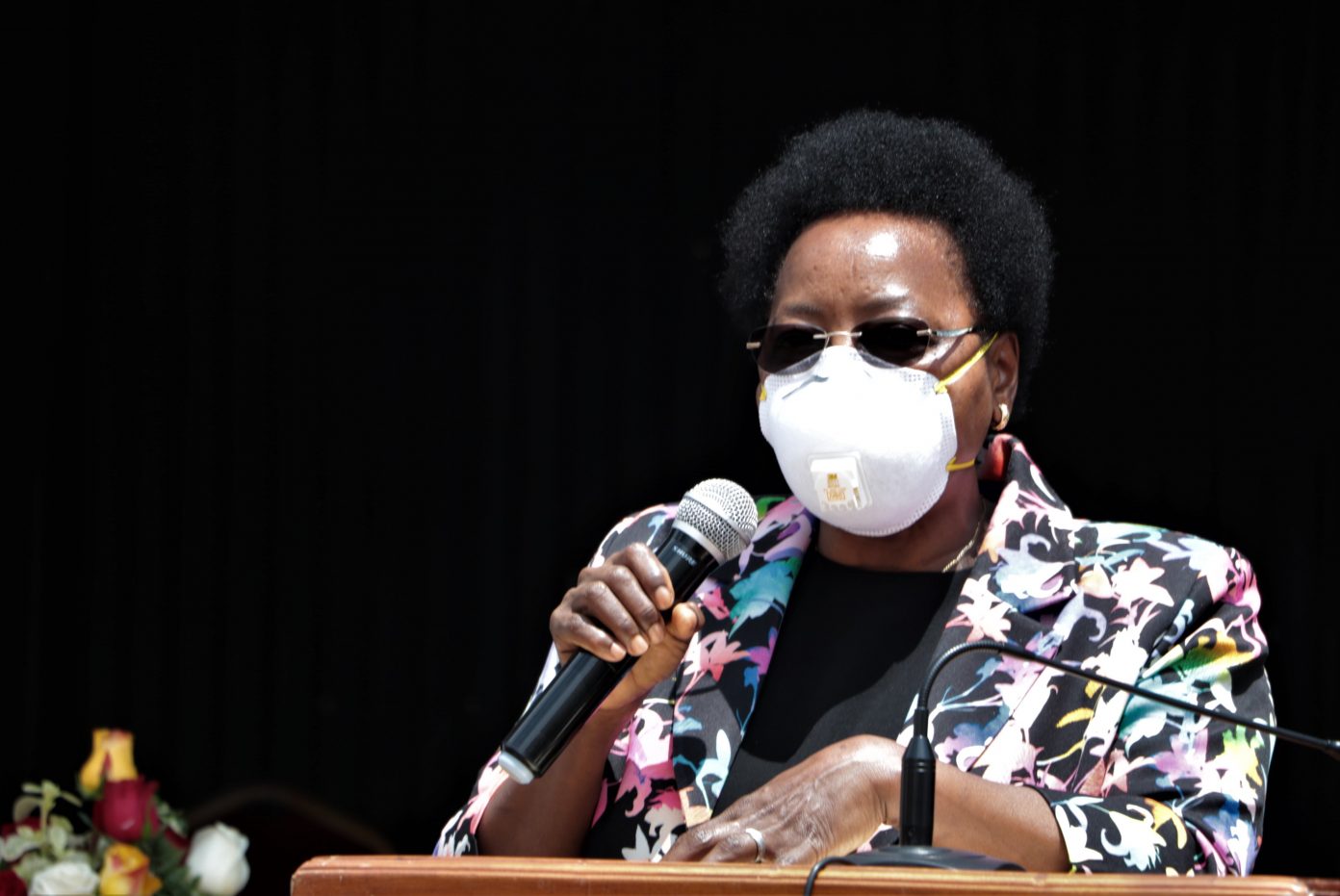STATEMENT ON THE OBSERVANCE OF THE 16 DAYS OF ACTIVISM AGAINST GENDER-BASED VIOLENCE
Today, the World comes together to commemorate the commencement of the 2020 International Campaign against Gender-Based Violence, simply dubbed “16 Days of Activism”. During the campaign period running up to 10th December 2020, the National Gender and Equality Commission joins Kenya, the UN and the globe at large to reflect, take stock and formulate measures that will contribute to ending violence against women and girls. The theme for this year’s 16 Days of Activism campaign 2020 is “Orange the World: Fund, Respond, Prevent, Collect!”
Gender-Based Violence (GBV) is a manifestation of the existing power inequalities between women and men, girls and boys and encompasses a wide array of human rights violations. It takes multiple forms including physical, sexual, psychological and economic violence. Kenya has over the years recorded high rates of violence against women and girls including intimate partner violence, child pregnancies, Female Genital Mutilation(FGM), early and forced child marriages. A study by the National Gender and Equality Commission in 2017 on the economic burden of GBV revealed that Kenya incurred Kenya Shillings 46 Billion, (equivalent to 1.1% of its Gross Domestic Product) in the management and response of GBV.
The COVID-19 pandemic like many other emergencies has aggravated the situation even further. Reports from various sources indicate an unprecedented upsurge in the cases of GBV particularly after Kenya announced restricted movements of persons and closing of schools to contain the spread of coronavirus. A study by the Kenya National Bureau of Statistics in 2020 showed that 23.6 per cent of Kenyans have witnessed or heard cases of domestic violence in their communities since the introduction of COVID-19 containment measures. With the commencement of the second wave of COVID -19 infections in October 2020, the Commission is concerned that cases of GBV may continue increasing if deliberate and innovative measures are not put in place to effectively respond, manage and prevent GBV.
It is worth noting that Kenya has instituted various legal and policy reforms, invested in the establishment of institutions to prevent, respond and manage GBV and initiated innovative behavioural and communications programs to end GBV. Kenya is also a signatory to several international and regional conventions and treaties committing to ending GBV against women and girls. In 2019 during the International Conference of Population and Development+25 Summit held in Nairobi, H.E the President committed the Government of Kenya to eliminate FGM by 2022 and all forms of GBV and harmful practices by 2030.
In April 2020, Kenya established an inter-agency programme to prevent GBV during COVID-19. Besides, the Government through various agencies including the National Police Service and some County Governments has established toll-free hotlines and various online and mobile applications that enable anonymous reporting of all incidences of GBV. In August 2020, the National Police service launched an innovative multi-sectoral strategy branded, ‘Policare model’ for the response, prevention and management of GBV. The non-state actors and private sector have also been instrumental in public education, provision of psychosocial support to survivors of GBV, promotion of access to justice and rehabilitation of perpetrators among other efforts.
The Commission applauds government agencies, County Governments, the development partners, the private sector, non-state actors, faith sector and the communities for their continued programming, funding and strengthening of interventions geared towards the elimination of GBV. Nonetheless, the Commission is deeply concerned about the emerging trends of domestic violence and sexual harassment directed to women, girls and boys, particularly in the private spaces. Currently, Kenya is experiencing increasing cases of abduction of teenage girls and boys who are then exposed to pornographic materials, drugs and substance abuse, and sexual activities. Sexual attacks directed to girls with disabilities and older women are also on the rise. There are more cases of online sexual harassment as well. We have also observed an emerging culture of silence among victims of GBV perhaps due to confinement of persons at home and feeling of hopelessness. These incidences are estimated to increase during the December festive season when most families and communities venture into fun and celebrations.
As we commence activities and campaign against GBV in the next 16 days, the Commission urges state and non-state actors to focus on these emerging drivers of GBV. The scale-up of the National Response Plans for COVID-19 and subsequent implementation of Economic Recovery Strategy further presents the government and development partners with opportunities to continue funding and investment in GBV programs including the collection of timely data.
The National Gender and Equality Commission remains committed to promoting gender equality and freedom from discrimination as mandated by the Constitution of Kenya. The Commission further commits to continue in its endeavour to address GBV by holding duty bearers to account for measures put in place to end GBV. We shall continue to call on the justice sector to serve expeditious and firm justice to survivors and reprimand violators. And to this end, we join the rest of the World in the call for ‘Fund, Respond, Prevent, Collect, to End GBV against Women and Girls.
Dr, Joyce M. Mutinda (PhD.)
CHAIRPERSON
Fund, Respond, Prevent, Collect!"


Comments